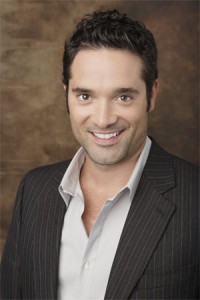 Morgan Wandell
Morgan Wandell
Morgan Wandell ’93, former senior vice president of drama at ABC Studios, has been tapped by Amazon Studios (Amazon.com's division that develops comics, movies and television shows) to head drama development at the online company, as it branches into creating feature programming for its customer base.
As SVP Drama at ABC Studios, Wandell developed such series as Brothers and Sisters, Ugly Betty and Criminal Minds. Amazon is currently readying its first two drama TV pilots, Bosch and The After, to be produced by Chris Carter (X-Files).
Wandell graduated from CMC with a degree in economics, but by his own admission, took the “bare minimum” course load, supplementing his major with classes in “everything else.”
We were able to cadge a few minutes with Wandell in the midst of his transition from ABC to Amazon. He was happy to talk about storytelling on TV, what makes a good leader, and the great advice he once received.
What will your duties be as senior vice president of drama at Amazon Studios; what kind of shows are they developing that you will shepherd? Morgan: Amazon is entering the ring with Netflix, HBO, Showtime and all the other players in premium television. My job is to find us defining shows that drive people to sign up for Amazon Prime, just like Netflix found with House of Cards or HBO has with Game of Thrones.
Can you “crystal ball” a bit and tell us what your views are on what future course technology will take regarding movies and TV–– i.e. streaming, other delivery platforms, companies like Netflix becoming content producers, etc.? Morgan: For all the changes taking place in the business, the one thing that remains the same is the audience’s insatiable appetite for great storytelling. Right now, the best storytelling is taking place in television, not movies. In terms of the future, inevitably, audiences will continue to watch what they want, when they want, and on whatever devices they want to. Companies like Amazon are going to give them those choices, and provide them with great content at every opportunity.
How did you get into the entertainment field (specifically drama), and what piqued your interest? Morgan: I got interested in the TV business during a summer internship while I was at CMC. Originally, I thought I was going to go into banking or consulting, but I also had a real passion for current events. I took an internship working for Channel One News, which is where Anderson Cooper, Lisa Ling, and a lot of other outstanding young journalists started. Once I realized how fun it was to tell stories, and that you could get paid to travel the world covering them, I was hooked. A few years later, I decided I wanted to become a programming executive and got a job working at Disney’s TV studio, then called Touchstone Television.
What kinds of leadership skills are necessary to do what you do? Morgan: Television has never experienced such profound change. The business models are all evolving and being constantly rewritten. At the same time, great content lives and dies on creativity. So it’s challenging to lead under all those circumstances. The most important skill is passion for great content and talent. As an executive, your job is to find and identify those ideas and individuals, and relentlessly champion them. Television is also the ultimate collaborative medium, so you need great people skills. If you can’t work well with creative people, you won’t last very long in the job.
How did your time at CMC prepare you for your current role; how do you put to use your acquired skills every day? Morgan: CMC was a great training ground for a career in entertainment, and I wish more students would consider a career in this field. As a creative executive, you are constantly balancing the demands of art and commerce. CMC gave me a great background in subjects like art, literature, history and philosophy, which are all essential knowledge for telling stories about the human condition. And my courses in econ, accounting and finance really helped me understand the business behind the shows. During my senior year, I was also a fellow at the Athenaeum. Every night, I had dinner with another fascinating leader in a different field. Those experiences and social interactions were just invaluable when I became a news producer. I was very comfortable asking questions of much older, more experienced individuals.
What is the best piece of advice or knowledge that you can remember receiving from your time at CMC or anywhere else? Morgan: Go hard or go home.
What is the most challenging/rewarding aspect of your job? Morgan: The most challenging is getting a show on the air and seeing it connect with an audience. This is a business where 90 percent of all shows fail. But when they touch a nerve with the public, it’s incredibly rewarding.
What is your favorite television dramatic series, either past or present? Morgan: The Sopranos really raised the bar in terms of what is possible on television. Tony (James Gandolfini) was one of the most complex and iconic characters in the history of television, and the show pushed everyone to dig deeper. I also loved working on Lost. I thought it was a really special show.
What do you do to unwind––that is, when you have the chance? Morgan: I like what most people like. I love great movies and TV shows. And I love good food and wine. I can’t imagine life without those things at the end of a long week.
